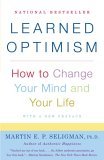
April 01, 2009
The Goal Kicker – April 2009
Welcome to this month’s edition of “The Goal Kicker” – the monthly ezine produced by achieve-goal-setting-success.com - dedicated to helping you achieve your goals by providing goal setting related articles and reviews of the latest goal setting products available.
In this edition you’ll find:
- An article on “The Power of Positive Thinking”, by guest writer Arina Nikitina
- A review of the goal setting system“How to Set and Achieve a Goal”
- A snapshot of books on Attitude and Positive Thinking.
- A review of this month’s Featured Link to www.naphill.org
- ToolBOX Talk – how to get the best out of the ’Success/ Failure Analysis’ tool
- Our inspirational quote of the month explained.
Yours truly,
Sam Sander
Achieve Goal Setting Success
Your Money and Finance
The Success Squid
Have you downloaded your FREE gift for subscribing to “The Goal Kicker”? If not, please download and enjoy your FREE copy of “How to Make your Dreams Come True" by Don Loyd as a thank you for subscribing to our newsletter.
As part of this subscription we also issue a mid-month mini-newsletter – “The Goal Kicker: Hot Topics”. This mid-month issue is part of the same subscription as the monthly “Goal Kicker” and will include a short punch-list of new releases, new websites and refreshers on a range of success topics.
”The Power of Positive Thinking”
What’s this article about?Arina Nikitina is the author of the goal setting tutorial "How to Set and Achieve a Goal" and the FREE 5 Success Tips. Get 27 proven techniques, 9 worksheets, and step-by-step success plan here, or get your 7 day trial.
Here’s the Article…
Although you can see that the glass is half-empty, you chose to see it in a positive way. It is still half-full, anyway. The absence of half of the volume of water didn’t even bother you. What mattered was that it still contains water. If this is how you answered the question above and how you justified your answer, then you have a positive way of thinking.
Positive thinking is a way of looking at the brighter side of life. Everything is good, beautiful, and light. There are no worries, problems, or fears. In short, all you see and believe in is, well, positive. I guess that’s already the most suitable word in describing this way of thinking, which is why it is the term being used.
This kind of thinking is very powerful in that if you think that you are going to pass an exam, you are going to pass; if you think that you’ll get noticed by your crush, you’ll get noticed; if you think you will get promoted at work, then you’ll get promoted. This is how powerful the mind is, particularly positive mind. Even the famous Clint Eastwood believes in this general truth that he quoted, “If you think it’s going to rain, it will.”
So, how does the power of positive thinking works? How can it create reality? Do we only have to think of positive things and then will it happen right away? That positive thinking really is powerful may be somehow hard to believe at first, that’s why we may ask certain questions like those above. Because the mind is working on the information you send it, positive thinking leads to positive reality. This is how it works. Yes, we do have to really think of positive things. But it doesn’t stop there.
Remember the ever-famous cliché “Do your best and God will do the rest”? You know, it’s true. Aside from believing in and having faith in something we want to happen, we have to do something about it. You can’t ace an exam just by sitting on the couch and watching TV days before taking it, can you?
Let us take into account again the computer as a metaphor of the human mind. The mind is like a computer, this time due to the fact that we can program it with certain functions and tasks. Sometimes, it even acts as our autopilot. For instance, we use it when we drive and talk on a mobile phone at the same time. Therefore, we can program it with whatever we want to happen.
Say, for example, you want to be attractive. Thus, you say to yourself “I can be beautiful, healthy and slim.” But for this positive thinking to work, you can’t just leave it at that. You still need to do something. You need the right self-programming:
“I can be beautiful, healthy, and slim if… (a) I’ll take enough rest every night; (b) I’ll eat proper balance diet; (c) I’ll do exercises; (d) I’ll brush my teeth every after meal; etc.” And if all these thoughts sink into your system, you’ll see that they wouldn’t be far from happening.
Mind power implies will power. With positive thinking, one does not stop with I can or I am. There will always be an I will after it in which it will cause the realization of his aspirations.
Positive thinking is a powerful tool that helps us build the life we want. It can make us beautiful and smart. It can get us the dream job with the excellent salary we always dreamed of. It can help us find our one true love. But we have to use them properly and we have to continue working with them regularly - to the point where it becomes such a habit that we ought to say them all the time. Isn’t it better maintaining such thoughts than keeping worthless ideas inside our head – the stuff we keep thinking about but doesn't really help us accomplish anything and, in many cases, may actually push us backwards?
We should also understand that some affirmations take some time to take effect. It really depends on where we are and what we want to accomplish. For example, if you're unemployed yet want to be a millionaire, well, in reality, it will take quite some time. You have to get a job first, and from there, start making the big money and earn the millions you want. Successes usually not happen overnight. So the first step is to focus on how we can accomplish our goal. If we are on the right place, plus we possess the right attitude, then it won’t be too far.
Refer to the ”Life Skills” tab on the NavBar for more information on attitude and motivation.
Product of the Month – “How to Set and Achieve a Goal”
You were born with the greatest ability to turn your dreams and fantasies into tangible reality. You can achieve any goal you set your mind to. You can climb any mountain you want. You have the potential to become a pure success in every business you start.So the question is...Why haven’t you achieved your dreams? If you’re like me a few years back, it’s probably because you don't have a simple system to set and achieve your goals!
Goal setting is not just deciding what you want and trying to reach it. It is a step-by-step proven method of achieving the desired results. It has its own rules and regulations.
Goal setting is not a complicated science with hundreds of complicated formulas... In fact, it's really simple. But in order to use this system effectively, you have to know how it works. That's what "How To Set And Achieve A Goal" is about.

"How To Set And Achieve A Goal" reveals 27 proven goal setting techniques that are guaranteed to work even if you have no dedication, no persistence, and no willpower whatsoever!
It also includes 9 worksheets that practically develop a step-by-step success plan for you. Just fill in the blanks and answer a couple of easy questions and you're ready to start making your dreams come true! Here's just a small sample of what is included in the system:
- 3 powerful techniques to help you get rid of negative emotions and stress that are holding you back and prevent you from being successful.
- Top 3 techniques on how to develop a positive attitude... no matter what happens with you.
- How to figure out what you really want and what is your most important goal at this moment.
- How to develop the intense desire to reach your goal so you knew with absolute certainty that you would absolutely, positively never ever give up.
- How to develop unstoppable belief in yourself and eliminate fear and doubt forever.
- The secret of the first step how to overcome the law of inertia.
- Top 7 leading motivation techniques that will put you on the fast track to your goal.
- How to overcome any obstacle standing in your way in 4 easy steps.
- How to resist any temptation that stands in your way with one simple question.
- How to stop putting things off and start to complete all the tasks in time.
- How to find time on working on your goal even if you're the busiest person on earth.
To find out more about "How to Set and Achieve a Goal" click here, or get your 7 day trial..
And get these FREE 5 Success Tips from Arina Nikitina.
Refer to the ”Software” and ”Systems” tabs on the NavBar for more reviews on other goal setting software and systems available.
Book of the Month – A Snapshot of Books on Attitude and Positive Thinking
If you likes Arina’s article on the Power of Positive Thinking – and we ALL need to some positive thinking in todays’ economic climate – then here is a snapshot of some good books on attitude and positive thinking.Learned Optimism
Chapters cover success at work, the origins of optimism, school, health, politics, religion and culture, and changing from pessimism to optimism. With generous additional advice on how to encourage optimistic behavior at school, at work and in children, Learned Optimism is both profound and practical–and valuable for every phase of life.
The Personal Success Pocketbook
A pocketful of quick tips, tools and techniques to help you give your life direction, achieve your personal definition of success and enrich your life. Ideal if you don’t have a lot of time, but need to know!
The Secret (book version)
You may remember the buzz surrounding “The Secret” – it has been marketed as and age old secret known only to a select few. The Secret of attracting abundance and wealth based on the law of attraction. Available as a 2 hour movie and a book, it sold over 500,000 copies in 6 months.
You can get your own copy of “The Secret” from the official website at “http://thesecret.tv/index.html” but you may be able to get it cheaper on Amazon as a book, DVD or downloadable video.
Jack Canfield's Key to Living the Law of Attraction: A Simple Guide to Creating the Life of Your Dreams
This book is a simple 'how to' guide for using the Law of Attraction to create the life you desire. Within these pages, Canfield clearly explains not only what you need to know, but what you need to do in order to attract what you want in your life. Jack Canfield's Key to Living the Law of Attraction addresses the important issues of clarity, purpose, and action.
Think and Grow Rich!: The Original Version, Restored and Revised
Napoleon Hill's classic book offers a life-altering experience. It teaches thousands of people the practical steps to high achievement and financial independence every year. This new edition is the first to contain extensive footnotes, endnotes, appendices, and an index. Now more than a motivational work, it is also a reference book and a mini-history book providing valuable information about Hill, his times, and his success philosophy.
Featured Link of the month - www.naphill.org
Napoleon Hill was born into relative poverty in Virginia (US) in 1883. He began writing for a small newspaper at age 13, before embarking on a lifetime of writing on the topic of personal success and achievement.His life’s work is the cornerstone of modern motivational writing, which is based on the premise that "What the mind of man can conceive and believe, it can achieve". He reached this conclusion by studying ‘successful’ people, and developing 15 “laws” of success. Many of today’s motivational speakers and success experts have adopted Hill’s philosophy of achievement.
Which brings me to the website featured this month, to pass on his teachings in personal motivation, success and achievement, Napoleon Hill established the non-profit educational institution called the Napoleon Hill Foundation.
His books as well as audios, videotapes and other motivational products are available from the Foundation so you can build up your own arsenal of success tools. Hill’s philosophy of achievement was based on the following general beliefs and principles:
- The power of personal belief has a powerful role in personal success.
- Personal success comes from cultivating burning desire and faith, and from autosuggestion and persistence in the attainment of one's goals.
- ‘Fear’ and ‘selfishness’ have no part in achievement, and are the source of failure in unsuccessful people.
- Freedom, democracy, capitalism and harmony are important contributing elements – without these, personal aspirations are not possible.
- 98% of people have no firm beliefs, putting success well out of reach.
So next time you’re cruising online, check out www.naphill.org.
ToolBOX Talk – how to get the best out of the ‘Success Failure Analysis’
The ToolBOX on the website contains FREE forms, templates and worksheets for all your goal setting needs.In the “”Life Planning Workbook” you’ll find the ‘Success/ Failure Analysis’ tool. This tool consists of 3 pages.
The first page of the tool is a template for performing a detailed Success/ Failure analysis for a particular task or event, and you can use this page in a couple of different ways.
- You can record the details of 2 tasks on this page – one success and one failure.
- Or you can just use one page per event being analysed and chose the relevant column to complete, whether the task was a success or failure.
- Or you can use one page per event being analysed, and use both columns if some aspects of the task were a success and others were a failure. This is a good approach if there is no definite success or failure status for a particular task.
The second page of the tool is a summary page. This is where you write down all the lessons learnt from all your successes and failures. This page shows you YOUR pattern of success – and this is the pattern you need to follow. This page also shows you your pattern of failure – the actions you need to avoid if you want to succeed.
The third page of the tool offers a great explanation on how to complete Page 1 of the tool [the detailed analysis] and includes some trigger questions for you to get to the heart of WHY you succeeded or failed.
The one thing this page doesn’t trigger though is the issue of ‘blame’ – it wasn’t MY fault!
If you want to blame someone or something, then blame them! [not actually to their face though]. BUT, always realise that even if you think someone or something else is to blame for your failures, YOU are still the only person in control of what YOU do. So instead of thinking, “It’s not my fault”, start thinking “How could I have managed that situation better?”.
People who fall into a pattern of blame will also fall into a pattern of failure. But like failure, LEARN from you tendency to blame and learn how to recognise when someone is going to let you down. Ultimately, YOU are the some responsible for your success or failure.
Conversely, during a Success Analysis, you also need to be honest about people who were instrumental in your success and what you can learn from them.
For more information on reviewing progress and past performances, refer to the “”Goal Setting” tab on the NavBar, and read through the sections on monitoring goal progress.
Have you got a better goal setting tool that you’d like to share with the world? Well, send it in and we’ll add it to the ToolBOX – kudos to you of course!
Our Quote of the Month – explained…
“Perseverance is not a long race. It is a series of small races, one after another.”I found this saying in a fortune cookie. And it’s a useful saying to keep in mind because so many people get intimidated by their goals because they focus on how much work and effort they have to put in to achieve them, and how much they need to persevere. And this is bad news as it paralyses you from taking action on your goals.
And yes – some goals DO take a lot of time and effort to achieve. It takes on average 1000 hours to learn a new skill – and that’s only to a level where you are barely proficient! It takes much longer to become an ‘expert’ and longer still if you’re trying a skill that’s ‘difficult’ for you.
Goals like weight loss can also seem daunting – when you know you have 20 kg of weight to lose, it’s hard to believe you’ll ever get there.
But you will – one small race at a time. You’ll achieve your skill – by putting in 1 hour of effort at a time. You’ll lose your 20 kg, by losing 1 kg at a time. And every piece of the ‘new skill puzzle’ you put together, and every bit of weight you lose – will get you more and more motivated to take that next little race towards your goal.
How do you eat an elephant? One bite at a time.
So break your goals up into mini-goals and achieve these one at a time – knowing that each one is moving you towards your ultimate destination.
And regularly measure your progress against your goal – record every hour you spend developing your new skill, record your weight every week. If you monitor your progress, you’ll see that elephant getting smaller and smaller – and you’ll see the realization of your goal.
Want more information on HOW to monitor your goals? Checkout the ‘’How to Achieve’ tab on the NavBar to find out.
Well, that’s all for now!
But don’t worry, the next edition of “The Goal Kicker” is only a month away.
We would love to get your feedback on “The Goal Kicker”– what do you like? What don’t you like? - so we can make it even better.
Catch you next month!




